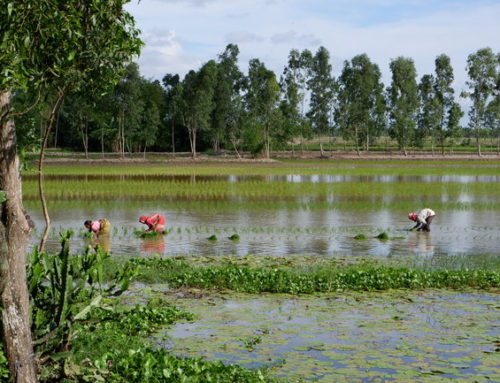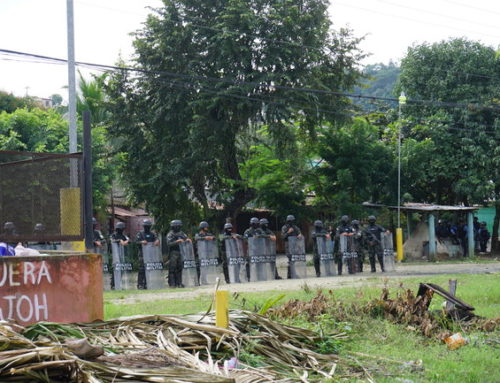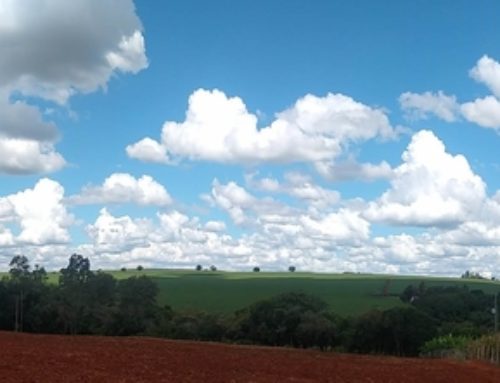I arrived in Vladivostok wearing a face mask. Daily life seemed to continue as usual in this city that I have come to know. I was not put in quarantine, but rather was expected to wear a face mask until a two week period ended. I thought that this would be the main shift in my fieldwork: a two week “delay” that would enable me to fully acclimate to the time difference, to learn how to access archives, and to settle. During my first week, however, virus talk was always on the periphery. Students that I walked by and spoke to through my mask discussed COVID-19. “My classes got cancelled,” one said. “My classes are now online,” said another. “I’m going to stay [in the dormitory] because I would be lazy at home,” said yet another. In offices, students attempted to convince administrators to allow them to stay, and administrators worried about students’ health required students to have institutionally valid reasons to stay. Meanwhile, I continued to receive emails from my home institution with updates about the university community, how the virus had impacted it, and what steps the university was taking. I also received an email informing me that the U.S. Consulate General in Vladivostok was suspending its activities and that the Consulate General in Yekaterinburg almost 4,500 miles (7,240 km) away was taking over their consular duties. Again, life in the city continues: bars and restaurants stay open serving customers, grocery stores are well stocked, and no one seems to be openly panicking. Research still seemed possible until my home institution suspended research with human subjects and a new university policy enforces social distancing during other forms of research as conditions worsen in the United States. It is unclear how the COVID-19 epidemic will impact other forms of research. For example, archival research is still allowed but researchers must follow social distancing protocols, although it is uncertain whether this will last.
It is also unclear how forms of ethnographic encounter as a method can be suspended when increasingly we are connected to the communities that we do research with via the internet, text messaging, phone calls, and social media. Similarly, some of us are more embedded within the communities of our interlocutors and must weather this storm with them and attempt to find ways of providing support while still distancing. Systematic in-person research might officially be prohibited, but our observations, experiences, and communications remain. Given these realities, some reflection is necessary on fieldwork around the world during a time crisis and of epidemic. Crisis and critique are always interconnected. Roitman conceptualizes crisis as “an observation that produces meaning” through its cognate critique (2014: 41). Crisis hangs on a future imperative by assessing how categories and systems should operate (ibid). It reveals that the distance between current function and ideal operation are often wider than not. In the United States, popular analyses of how COVID-19 in newspapers and online demonstrate the fragility and inadequacy of economic and medical systems, emergency protocol, and social security nets.
Within anthropology, this crisis also deeply impacts research as a whole and especially research with human subjects. As universities begin stalling research with human subjects, researchers must reckon with the risk that their research poses to their interlocutors, which now includes the risk of potentially infecting them with COVID-19 for all those who have recently traveled from or to places where the virus has reached. In my own fieldwork, I have contemplated the potential risks that fieldwork could expose my interlocutors who while not completely isolated are out of the way from the large population centers of Primorskii Krai because of my presence and my potential to currently be or potentially become an unwitting carrier of COVID-19. My thoughts did not begin with my home institution’s emails and risk assessment. Rather, it began with my own concern. I conduct research with the Udege, who are legally considered a small-numbered indigenous people of the North and in a classification system dating back to the 1920s (Slezkine 1994: 1), on the Upper Bikin River in the Russian Far East on the connection between their traditional and contemporary practices and nature conservation. As with indigenous peoples around the world, colonization brought disease and death to the indigenous peoples of this region (Sokolsky 2016: 147). Reproducing such an occurrence is antithetical to my approach to research and commitment to not harming communities, especially marginalized ones. Moreover, Kransy Yar is located far from the nearest hospital, and the current population includes many who might be at greater risk of having severe symptoms from COVID-19. Waiting until this crisis is more under control seems best.
However, this crisis also produces particular meanings for anthropologists: physical presence comes under question as methods that rely on face-to-face interaction become potentially more dangerous. Finding ways to be co-present with our interlocutors and each other is critical at this time. Although not everyone has access to constant or stable internet connections, the world is increasingly connected electronically. The digital realm offers us the ability to commit to sociality with and support for each other. Since many universities are imposing limitations on physical proximity, the digital can offer ways of social closeness and networks of support during this time. The digital and/or certain isolated public places also methodologically allows for research in many cases. In anthropology, the importance of being there cannot be understated or undervalued (Borneman & Hammoudi, 2009). Fieldwork is a must. However, how we broadly define fieldwork must include methodologies that respond to the times, the needs of fieldworkers, and the needs of communities. During this epidemic and beyond, it is worthwhile to conduct digital and other research methods: talking to interlocutors over video chat, following social media updates of interlocutors and organizations, participating in chat rooms and online forums, listening to or watching the news, going to archives (when shelter in place and other similar orders have not been issued), among so many more options. Such methods are also more broadly inclusive to researchers with disabilities, financial restrictions, and other states and statuses that prevent or hinder in-person research and should be valued even after the COVID-19 epidemic passes. People live their lives and present aspects of their lives online. Our interlocutors do the same.
Following all avenues in which interlocutors share aspects of themselves, their struggles, and their joys is essential in today’s world. Anthropologists have long studied these. Especially during this time of epidemic, anthropologists should continue this work when possible by using methodologies that keep people physically apart but socially near. Moreover, we should share ourselves, our struggles, and our joys with our interlocutors and with each other now more than ever. Some friends and acquaintances have expressed the sentiment that they are either doing too little and worrying about this lack or doing too much and feeling the need to take fewer measures. This matches much of my own feelings about this time. It seems that we’re all in a calm panic. But, if we can take this epidemic as a call for care and experiment in living with concern and care for all communities and parts of communities that we potentially impact, then we will be the better for it and so will the research we produce.
Notes:
[1] At the time of writing, I have four more days until March 26th when I will institutionally be viewed as not having the virus
References:
Borneman, John, and Abdellah Hammoudi. 2009. Being There: the Fieldwork Encounter and the Making of Truth. Berkeley: University of California Press.
Roitman, Janet L. 2014. Anti-crisis. Durham : Duke University Press
Sokolsky, Mark. 2016. Taming Tiger Country: Colonization and Environment in the Russian Far East, 1860-1940. Ph.D. dissertation, Department of History, The Ohio State University.
Slezkine, Yuri. 2016. Arctic Mirrors: Russia and the Small Peoples of the North. Ithaca: Cornell University Press.
Cite as: Kariem, Kamal. 2020. “A Calm Panic: Thoughts on Beginning Fieldwork in the Russian Far East (RFE) during the COVID-19 Epidemic.” In “Pandemic Diaries” Gabriela Manley, Bryan M Dougan, and Carole McGranahan, eds., American Ethnologist website, March 27, 2020. [https://americanethnologist.org/features/collections/pandemic-diaries/a-calm-panic-thoughts-on-beginning-fieldwork-in-the-russian-far-east-rfe-during-the-covid-19-epidemic]
Kamal Kariem is a doctoral candidate in anthropology at Princeton University



